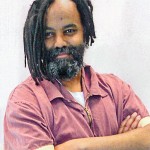‘Arab summer?’
This column was transcribed from a Sept. 12 audio column from prisonradio.org.
Several years ago, a new American president charmed the crowds in Cairo with his eloquence, his seeming earnestness, and most importantly, his person.
This president was the first such U.S. chief executive with caramel brown skin, and his name, Barack Hussein Obama, reflected, at least in part, an Islamic and African ancestry that sent ripples of delight throughout the North African audience.
Several years later, American embassies in several Arab countries are attacked, and most potently, a consular office in Benghazi, Libya — where a young U.S. ambassador is credentialed to the new, post-Gadhafi government — is struck by RPG fire — and burned to the ground, killing at least 4 Americans, including the country’s U.S. ambassador.
Reporters assign blame to an insulting and inflammatory anti-Islamic film that maligned the Prophet Muhammad.
But, that said, friends don’t burn or bomb friends.
Despite all the promise of Obama’s Cairo speech, his drone wars against alleged Islamic extremists, not to mention his continuing acquiescence to Israeli extremism and anti-Palestinian attacks, have burned bridges in the Arab and Muslim consciousness that finally explodes in real burning and real bombs.
Nor should it be overlooked that these attacks occurred on 9/11.
In Cairo, that vast, cosmopolitan and ancient city, where once the Obama name stirred hums of hope, now the embassy is raided and the U.S. flag shredded.
And, as ever in life, there is irony, for the American Embassy in Libya was undoubtedly the source of the arming of the anti-Gadhafi resistance — and perhaps the source of the attack on the U.S. Consulate in Benghazi, burning it to the ground.
In other words, the chickens have come home to roost. It seems the Arab Spring is over.


